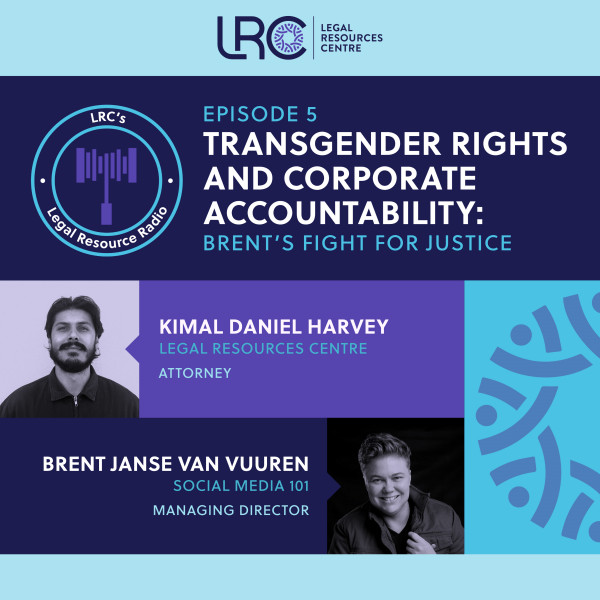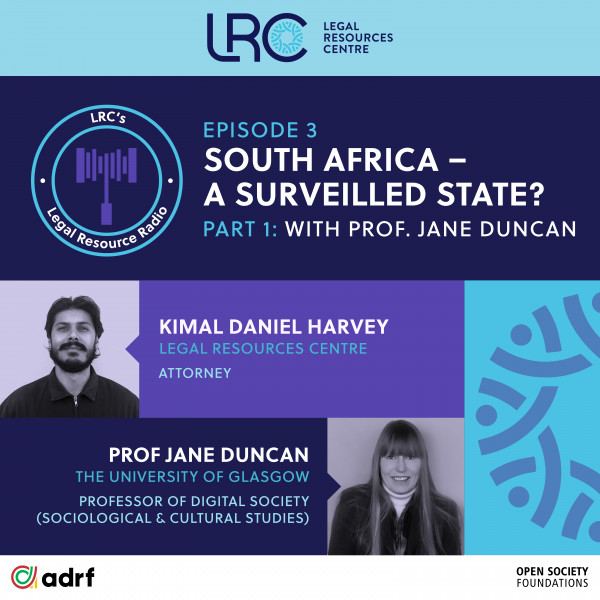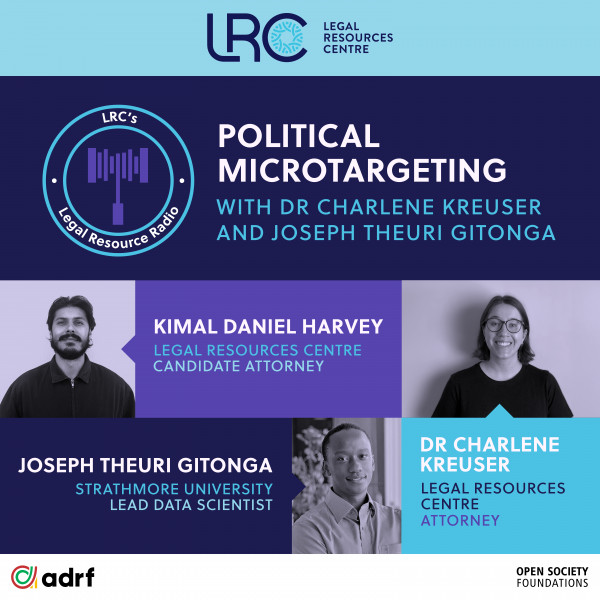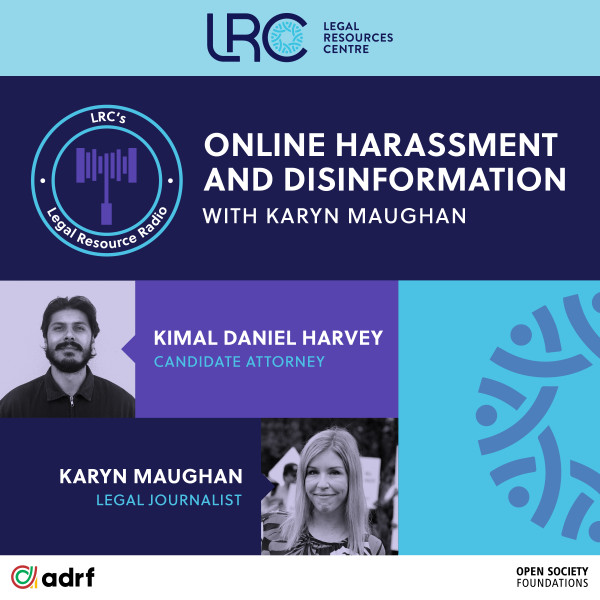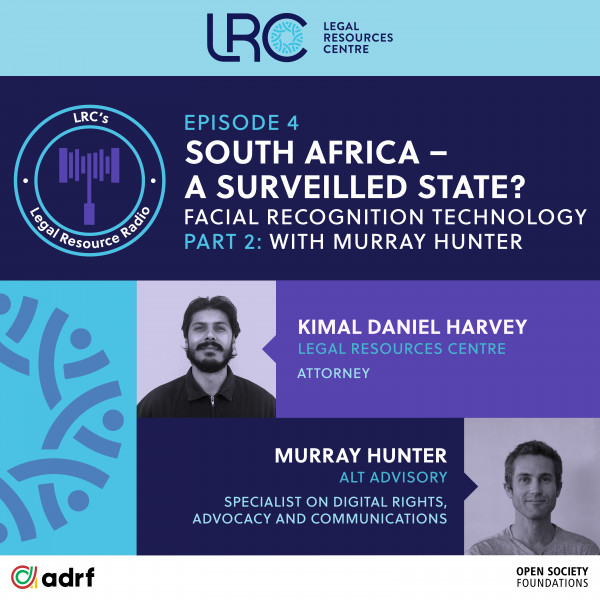
South Africa: A Surveilled State (Part 2)
Loading player...
In this episode of Legal Resources Radio, we continue our deep dive into South Africa’s surveillance landscape, shifting our focus to one of the most controversial surveillance tools today—facial recognition technology (FRT). Our host is joined by Murray Hunter, a public interest advisory expert from ALT Advisory, a Bertha Fellow, and a Ruth First Fellow, whose work focuses on communication surveillance, data protection, and digital rights.
Together, they unpack what facial recognition technology really is, debunking the Hollywood myths of flawless crime-solving systems and revealing the harsh realities of its implementation in South Africa. While this technology is often introduced under the guise of crime prevention, Murray explains why its effectiveness is highly questionable—especially given its well-documented biases against people of color, its inaccuracies, and the risks it poses to fundamental rights and freedoms.
We also explore the growing role of private companies in driving facial recognition adoption, how global tech firms are exporting this technology to South Africa, and why our government’s attempts to build its own biometric database remain a cause for concern. Beyond the technical and legal challenges, we discuss the historical and political implications of mass surveillance in a country with a legacy of apartheid-era state control.
With crime being a major concern for many South Africans, there’s an increasing push for security-first solutions like facial recognition. But does it actually reduce crime, or does it merely shift it elsewhere? And at what cost to our civil liberties?
Join us for this thought-provoking discussion as we critically assess whether South Africa is truly becoming a surveillance state—or simply a state being surveilled.
Together, they unpack what facial recognition technology really is, debunking the Hollywood myths of flawless crime-solving systems and revealing the harsh realities of its implementation in South Africa. While this technology is often introduced under the guise of crime prevention, Murray explains why its effectiveness is highly questionable—especially given its well-documented biases against people of color, its inaccuracies, and the risks it poses to fundamental rights and freedoms.
We also explore the growing role of private companies in driving facial recognition adoption, how global tech firms are exporting this technology to South Africa, and why our government’s attempts to build its own biometric database remain a cause for concern. Beyond the technical and legal challenges, we discuss the historical and political implications of mass surveillance in a country with a legacy of apartheid-era state control.
With crime being a major concern for many South Africans, there’s an increasing push for security-first solutions like facial recognition. But does it actually reduce crime, or does it merely shift it elsewhere? And at what cost to our civil liberties?
Join us for this thought-provoking discussion as we critically assess whether South Africa is truly becoming a surveillance state—or simply a state being surveilled.
